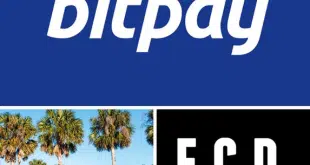A Canadian transaction processor has begun enforcing a recently reissued U.S patent whose long list of claims could potentially allow it to control several of the most popular electronic-check applications on the automated clearing house network. Indeed, if LML Payment Systems Inc. succeeds with an infringement suit it brought last week against 17 financial institutions as well as e-commerce processor PayPal Inc., the Vancouver, B.C.-based company could be positioned to extract fees from any bank or processor handling point-of-purchase (POP), accounts-receivable conversion (ARC), Internet (WEB), phone-based (TEL) and possibly back-office conversion (BOC) transactions on the ACH. “We would look to a fully paid up license or a running royalty based on [the present value of] transaction volume,” says Patrick H. Gaines, president and chief executive of LML, which operates a subsidiary, LML Patent Corp., that controls five ACH-related U.S. patents issued between 1996 and this spring. LML also owns Beanstream Internet Commerce Inc., a Canadian e-commerce processor, as well as LML Payments Systems Corp., a U.S. unit that performs electronic check processing. LML's patent No. RE40220, a reissued patent granted by the U.S. Patent & Trademark Office in April, contains more than 100 claims that could be interpreted to cover at least four of the biggest-volume ACH e-check codes. POP, which allows merchants to convert checks to ACH debits at the point of sale, accounted for 117.5 million transactions in the third quarter, according to NACHA, the regulatory body for the ACH. ARC, which lets billers convert checks received at lockboxes, commanded volume of 652.5 million transactions. And WEB, or Internet bill payments, and TEL, or transactions originating over the phone, accounted for 522.9 million transactions and 86.2 million transactions, respectively. Introduced only in March 2007, BOC allows merchants to convert bundles of checks at the same time in a manner similar to ARC. BOC volume was 26.4 million transactions. NACHA figures do not count on-us volume. Industry experts who are following the company and its patent suit, which names as defendants major banks like JPMorgan Chase & Co. and Citigroup Inc. as well as smaller institutions like First National of Nebraska Inc., say a favorable settlement could mean a bonanza for LML. “It's a gold mine for them,” says Larry De Palma, president and chief executive of Brentwood, Tenn.-based consultancy TDG-Phenix Inc. “Everybody who's doing check conversion is going to have to figure in a click to LML for licensing fees.” Gaines says LML will enforce its patent rights aggressively. “If you're using one of the claims [in our patents], you're using it illegally, and that's not right,” he says. “If you're going to use it, fine, let's talk about a license.” LML has a history of suing to protect its patents. In 2006, it settled a case against First Data Corp., Electronic Clearing House Inc. (now part of Intuit Inc.), and Nova Information Systems Inc. (now known as Elavon). The settlement required the companies to pay licensing fees to LML for POP processing and involved cross-licensing of patents between LML and First Data. In the six months ending Sept. 30, LML earned $841,000 in revenue from such licenses, or 13% of its sales in the period. Four of LML's patents (Nos. 5484988, 6164528, 6283366, 6354491) cover various processes related to POP conversion. A fifth patent, 6547129, which the USPTO granted in April 2003, was similarly limited. But when the patent was reissued as RE40222, the original list of claims ballooned from four to 104, including claims that appear to apply to ARC, WEB, and TEL. Language in other of the new claims, including references to making and transmitting check images, could be interpreted to apply to BOC. “We don't map over to the [NACHA] codes,” says Gaines. “We're looking at the processes. It doesn't matter if its WEB or ARC. Those are just names.” Gaines will not comment on why the 17 specific banks and PayPal have been targeted in its latest suit, filed in the U.S. District Court for the Eastern District of Texas, a court heavily favored by patent holders. PayPal, which uses ACH processing to fund some of its transactions, refuses to comment on the litigation.
Check Also
Fiserv’s Latest Acquisition and other Digital Transactions News briefs from 3/19/25
Fiserv Inc. has acquired CCV, a payments provider operating in Germany, Belgium, and the Netherlands, in …




